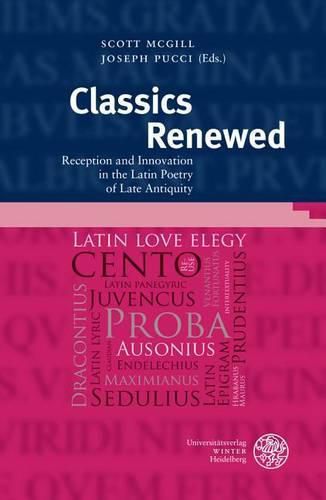Readings Newsletter
Become a Readings Member to make your shopping experience even easier.
Sign in or sign up for free!
You’re not far away from qualifying for FREE standard shipping within Australia
You’ve qualified for FREE standard shipping within Australia
The cart is loading…






Originally delivered at a bi-coastal conference on Late Latin poetry held in 2011 at Rice University and at Brown University, these essays explore some of the defining traits of the Late Latin poetic tradition, offering a sense of how Late Latin poetry was both conservative and innovative: its authors were grounded in the past, yet willing to take established models in new directions and to produce fresh forms in a contemporary literary milieu. More than this, these essays present fresh interpretive perspectives that accept the differences between Late Latin poets and their classical predecessors, and develop new critical approaches that respond to those differences. In the process, they arrive at a novel understanding of a large group of Late Latin poets and their texts and suggest some of the ways in which readers can profitably engage the new forms, content, and concerns that mark the Latin poetry written in Late Antiquity.
$9.00 standard shipping within Australia
FREE standard shipping within Australia for orders over $100.00
Express & International shipping calculated at checkout
Originally delivered at a bi-coastal conference on Late Latin poetry held in 2011 at Rice University and at Brown University, these essays explore some of the defining traits of the Late Latin poetic tradition, offering a sense of how Late Latin poetry was both conservative and innovative: its authors were grounded in the past, yet willing to take established models in new directions and to produce fresh forms in a contemporary literary milieu. More than this, these essays present fresh interpretive perspectives that accept the differences between Late Latin poets and their classical predecessors, and develop new critical approaches that respond to those differences. In the process, they arrive at a novel understanding of a large group of Late Latin poets and their texts and suggest some of the ways in which readers can profitably engage the new forms, content, and concerns that mark the Latin poetry written in Late Antiquity.